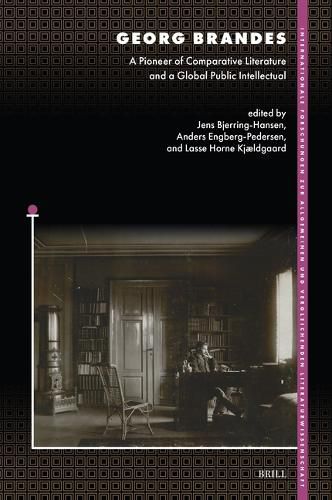Readings Newsletter
Become a Readings Member to make your shopping experience even easier.
Sign in or sign up for free!
You’re not far away from qualifying for FREE standard shipping within Australia
You’ve qualified for FREE standard shipping within Australia
The cart is loading…






Georg Brandes (1842-1927) was one of the leading literary critics in Europe of his time. His Main Currents of Nineteenth Century Literature (1872-1890) was a foundational text to the field of comparative literature and extolled by Thomas Mann as the "Bible of the young intellectual Europe at the turn of the century." Georg Brandes eventually developed into a truly global public intellectual, living by his pen and public lectures. On the eve of World War I, he was one of the most sought-after commentators, vigorously opposing all conflicting factions. This book seeks to understand Brandes' trajectory, to evaluate Brandes' significance for current discussions of literary criticism and public engagement, and to introduce Brandes to an international audience. It consists of 15 original chapters commissioned from experts in the field.
$9.00 standard shipping within Australia
FREE standard shipping within Australia for orders over $100.00
Express & International shipping calculated at checkout
Georg Brandes (1842-1927) was one of the leading literary critics in Europe of his time. His Main Currents of Nineteenth Century Literature (1872-1890) was a foundational text to the field of comparative literature and extolled by Thomas Mann as the "Bible of the young intellectual Europe at the turn of the century." Georg Brandes eventually developed into a truly global public intellectual, living by his pen and public lectures. On the eve of World War I, he was one of the most sought-after commentators, vigorously opposing all conflicting factions. This book seeks to understand Brandes' trajectory, to evaluate Brandes' significance for current discussions of literary criticism and public engagement, and to introduce Brandes to an international audience. It consists of 15 original chapters commissioned from experts in the field.